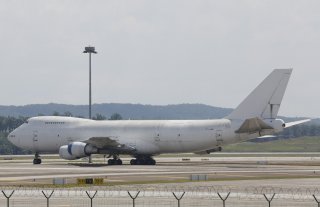Should a Boeing 747 Be Armed With Cruise Missiles?
As Tyler Rogoway pointed out way back in 2014, a 747 carrying 72 cruise missiles would have been extremely handy over Afghanistan throughout the past 20 years of conflict.
America’s and China’s booming economies are so intricately intertwined with one another’s and the world’s at large that declaring war would be akin to detonating a nuclear bomb in the ethereal plane of global commerce. Of course, that’s not to say that America and China will get along, it’s just much more likely that the war between them will manifest in proxy conflicts in the developing world, as each nation jockeys for diplomatic leverage, resources, and strategic footholds around the globe. Avoiding war certainly isn’t a sure thing, but the Cold War model, for all its failings, did manage to stave off nuclear winter.
With America’s Special Operations forces spread apart further than ever, supporting ally and partner forces the world over in combat operations against terror cells and the like, America has a growing need for economical air support in the developing world. SOCOM’s Armed Overwatch program is aiming to meet that need, but a fleet of converted commercial arsenal ships could prove invaluable in that and similar roles.
The biggest challenge in supporting disparate operations spread throughout a massive landmass like Africa is the “tyranny of distance.” Cheap 747s converted to carry long-range cruise missiles and shorter-range munitions alike already have the endurance needed for continent-spanning missions, and that range could be extended further through in-flight refueling. In other words, in the 21st century, a 747 filled to the brim with bombs and missiles could well be the king of the battlefield.
The last production 747s are slated for delivery next year, but the effort could be even lower-cost if the U.S. were to procure used airframes for the job. Likewise, any number of newer commercial aircraft could fit the bill.
Alex Hollings is a writer, dad, and Marine veteran who specializes in foreign policy and defense technology analysis. He holds a master’s degree in Communications from Southern New Hampshire University, as well as a bachelor’s degree in Corporate and Organizational Communications from Framingham State University.
This article first appeared in Sandboxx News.
Image: Reuters

